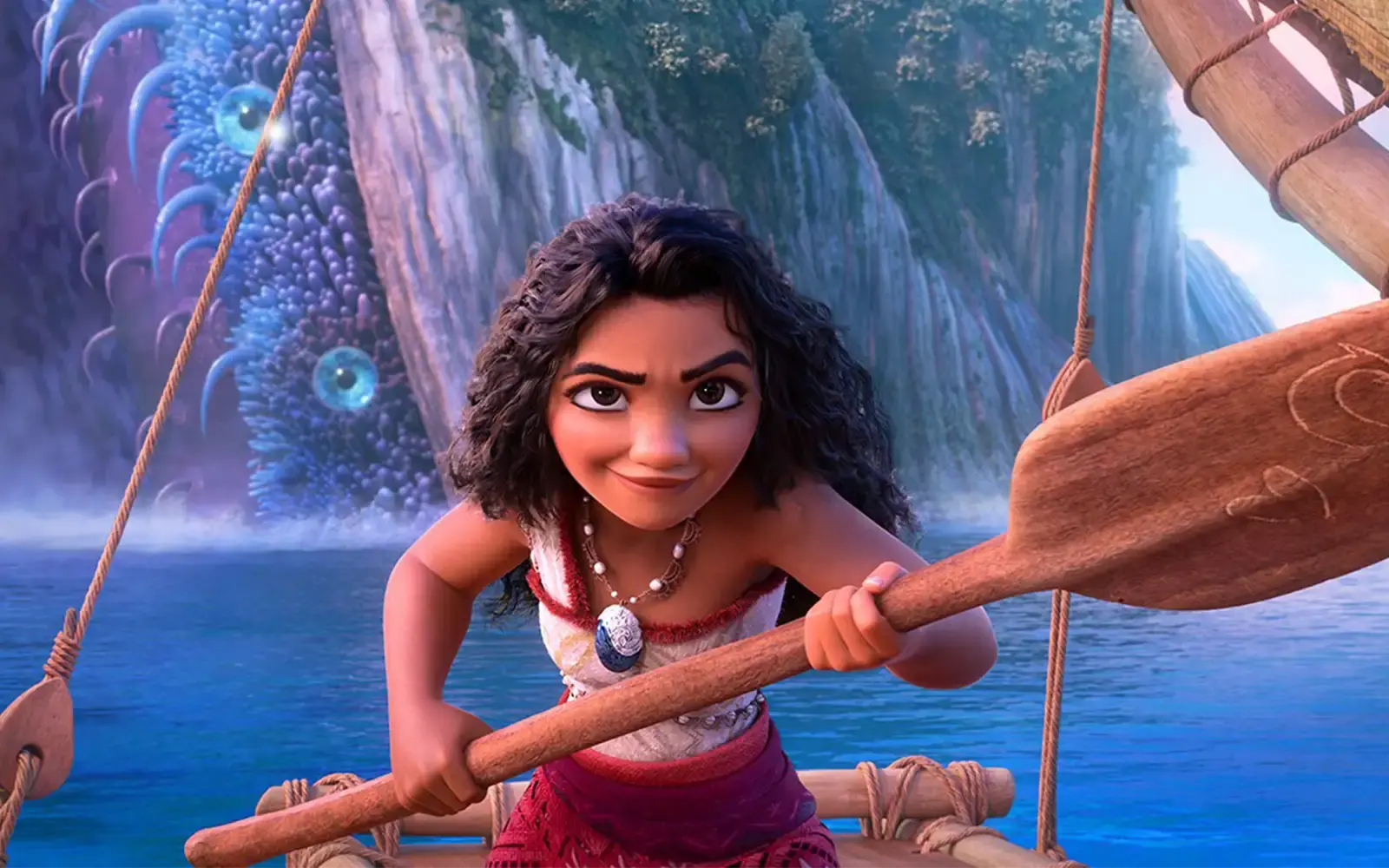
Image by Disney. Licensed under Creative Commons Attribution 4.0 International Deed.
In ‘Moana 2,’ the stories make us
December 18, 2024
“Moana 2” treads familiar territory. The titular Disney princess again goes on a seafaring adventure with the demigod Maui, seeking to forestall a crisis for her people. The strength of the sequel is also the strength of the original – it seamlessly weaves the foundational myths of the Polynesian peoples into the telling of a new tale for a broad audience.
“Myth” can sometimes seem like a bad word when it comes to these foundational stories, but I do not mean that the stories are not true. Instead, when I use the term, I am borrowing from Mircea Eliade’s definition, where myths are sacred stories about how and why things came to pass. Indeed, much of Scripture can be a “myth” in this sense – there are foundational stories that share something about primordial time (Creation), explain why we are in this state (sin), and offer a path out of it (Jesus).
Watching Moana navigate the seas with her friends showcases the power of these stories. They even introduce a new character, Moni, who knows all the sacred myths and helps them locate the goal that they are seeking. Without him, and without the knowledge of these foundational stories, the seafarers would be lost.
Indeed, without these stories their actions, while heroic, would lack a context and a meaning. They would simply be sailing the seas and discovering new places, instead of righting cosmic wrongs, engaging in battle with the gods, and charting a new future for Moana’s people. In “Moana 2,” the future lies in the past. There can be no new beginning without a return to what was before, another idea that Eliade delves into in “The Myth of the Eternal Return.”[i]
We do not make the stories; the stories make us. We are products of stories of longing, finding, losing, and things made whole that have no reason to be.
Returning to the past is something that we, as Christians, often try to do. This is a particular area of interest in the Baptist tradition. Using Scripture as a guide, my tradition has tried to format church in such a way that it is as close as possible to first century Christians. What often ends up happening, however, is that we organize church in the way that 19th-century Christians thought that first-century Christians practiced. Generationally, there is a movement to get closer and closer to the beginning, to open up that primordial time of beginnings and step through a portal to a different world where everything is possible.
The past is the beginning – of reformation, of true religion, of possibilities, and of our faith. In this, we are not unlike the message that the producers of “Moana 2” seem intent on preaching. Without the past, Moana would be lost, and without the past, embodied in Scripture, we would be lost. In “Moana 2,” these stories make the present come alive with magic and possibility, and in our churches, they also enliven our fellowship and pull us together. In the end, it is the ancient stories of our people that provide our salvation.
As human beings we suffer under a kind of optical illusion – we think that we are the ones telling the stories, that they are somehow our creations. Christians, particularly liberal ones like myself, may think that the stories from the Bible are ours for the telling or that they are quaint, but that we have moved beyond them. Make no mistake, how we tell them is important, but the truth of the matter is more radical and unsettling than that. We do not make the stories; the stories make us. We are products of stories of longing, finding, losing, and things made whole that have no reason to be. The stories form us, shaping our imaginations and the contours of our thought. They form the boundaries of the possible and the outer limits of our greatest desires. They are our greatest resource.
Rev. Dr. Michael Woolf is senior minister, Lake Street Church of Evanston, Illinois. He currently serves as the Co-Associate Regional Minister with the American Baptist Churches Metro Chicago. His book, published in 2023 by T&T Clark, is titled “Sanctuary and Subjectivity: Thinking Theologically about Whiteness and Sanctuary Movements.”
The views expressed are those of the author and not necessarily those of American Baptist Home Mission Societies.
[i] Mircea Eliade, The Myth of the Eternal Return. Princeton University Press, 2021 [1949].


